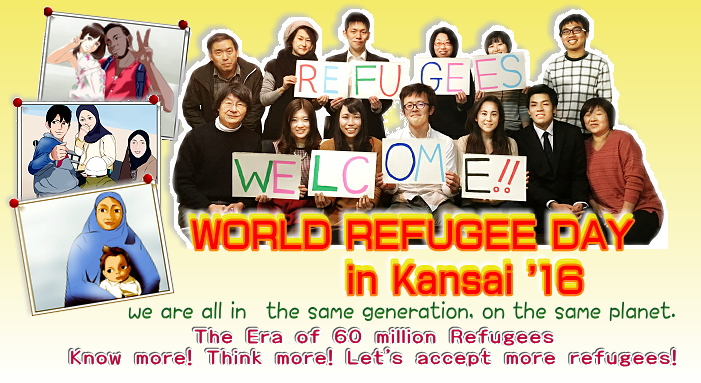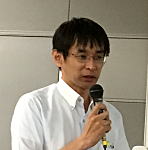 |
< top < Report
A Report on a Refugee's Court Case: "Let's Have Court Cases that Meet International Standards!"
Given by Teruo Naka, lawyer for Mr R., an Afghan refugee who went to court to overturn the rejection of his application for refugee status.
 |
 |
| Mr. Teruo Naka (Lawyer) |
A Slide from Mr. Naka's Speech |
The Main Points from Mr. Naka's Speech:
- The Japanese government is aware of the situation in Afghanistan, and the
Foreign Ministry has a Level 4 Evacuation Recommendation in place for the
country. Despite this, they insist that it is unnecessary to determine
whether people who flee Afghanistan in search of protection should be judged
by the standards of the UN Handbook on Refugee Acceptance, and refuse to
adopt it as a guiding principle.
- According to the prevailing view in the international legal community, anyone who ignores guiding principles such as the Handbook (in this case Japan's Ministry of Justice) must justify ignoring the principle. (e.g. they may be asked to provide evidence to support their decision to ignore the guidebook). (Walter Kalin, 2003).
- Article 98 Section 2 of Japan's constitution demands that documents such
as the Handbook are adopted and used as key guiding principles. (i.e. the
duty of loyalty to treaties).
- Court cases brought by refugees are the same as civilian court cases, and
so the burden of proof falls on the litigating party. As such, it is determined
that the applicant needs to prove that they are a refugee (precedent established
by the Nagoya district court).
- However, civilian court cases are intended to resolve conflict between individuals. As such, their fundamental purpose is different to court cases brought by refugees. They cannot be considered the same thing.
- Some refugees are not persecuted specifically by the authorities of their
country of origin, but by other actors. Even if there are laws in place
to protect them from persecution, these laws cannot always be considered
sufficient to remove the "threat of persecution", and such persecution
must therefore be considered persecution.
- The Japanese government operates with an impossibly narrow interpretation
of the content of the refugee convention and the UN handbook. At other
times they simply ignore the necessary interpretation in order to refuse
granting asylum to refugees.
- If we were to apply the Handbook to refugee court cases, then asylum seekers do not necessarily need to provide proof that they are a refugee. Furthermore, we have to accept that they may be refugees even if they are not persecuted by the authorities of their country of origin.
(Report by C, RAFIQ member)
pagetop
|
Organisers: World Refugee Day 2016: West Japan Assembly Organising Committee
Affiliated Organisations: BRC-J (Burmese Relief Centre Japan); PASTEL (Ritsumeikan University's
Refugee Research Group);
J-FUN Youth Kansai (K.G.); The Social Guild; RAWA; Nanmin Now!; Neo Namin
Cafe Netowrk; RAFIQ,
Thanks & Dream (An organisation for evacuees from the Tohoku Earthquake
in western Japan); and others)
Supporters: UNHCR Japan; Amnesty International Japan; JLNR; JAR; FRJ; the Kansai NPO
Alliance
Cooperators:Nanmin Now!; the Yoyogi Animation School, Osaka
Office:RAFIQ Japan (The Network aiming at the Coexistence with the Refugees in
Japan)
mailto: rafiqtomodati@yahoo.co.jp
6-24 Oote-cho Takatsuki City, Oosaka 569-0078 FAX: 072-684-0231
Copyright (C) World Refugee Day 2016: West Japan Assembly Organising Committee,
All Rights Reserved. |
|